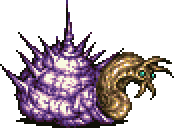Hello friends! Is there a lemmy community for roguelikes? I am, in this case, looking for a place focused on more traditional roguelikes (DCSS, CCDDA, BROGUE, etc)
If there isn’t one, no worries, send me you’re favorite unknown traditional roguelikes. I’ll tell you mine. It’s called “Empires of Eradia” it’s a more open combat focused RL with a unique twist on permadeath. It’s got great crafting and a strong focus on risk reward.
Played Nethack for many years but switched to Crawl eventually. Lately I’ve been playing Brogue too. Never ascended in any of them but that doesn’t keep me from enjoying them.
Must have: HJKL navigation (including diagonal). Big plus: terminal mode. Not a fan of tiles but I’ve grown to like Brogue’s hybrid approach. I think I am ok with it because it’s done so tastefully.
I’ve gotten spoiled by auto-explore and other travel aids in Crawl and Brogue, hard to go back to Nethack now. I am sure there are some variants that have it, I will look around at some point.For a while I played Nethack using an Emacs interface, that was pretty neat but it hasn’t kept up with later versions.
A few communities I am finding on https://browse.feddit.de/:
https://lemmy.world/c/roguelikedev
https://lemmy.sdf.org/c/nethack
https://lemmy.world/c/crawl
https://lemmy.world/c/dcssI am developer of a roguelike game and i was looking too for a community for it, thanks for sharing!
You have a link? I’d love to check it out.
Sure wasn’t sure if i was allowed ^^
https://store.steampowered.com/app/1134610/Dice_Hero_The_Unoriginal_Story/
Ohh I’ve heard of it! I think Roguelite Deckbuilders are one of my favorite forks to the roguelike genre. They consume more of my time and money than I’d like to admit to…
Looks neat, gonna give it a shot!
You know, I never got into nethack. I can appreciate it’s complexity but it seems just a little too much for me. I’ve played well over my fair share of crawl though. I don’t mind tiles so much when done well but ascii is just as good.
I must admit I’m spoiled not only to auto explore but also to the numpad… dcss always hit that perfect balance of an auto that was fluid and purposeful without diving you into weird situations and feeling inadequate (looking at you Qud, I love your game but your autoexplore is garbage).
I guess I may have to check out nethack again though. Thanks for the suggestion!
Eyy!! Just saw the edit! No idea why those didn’t show up when I looked! Thanks you very kindly!
quick Q since I keep reading about it, are Crawl and DCSS the same thing?
They are.
Well, to be pedantic, strictly-speaking Crawl was the original game, and Dungeon Crawl: Stone Soup the continuation. But unless one is very specifically referring to the early versions of the game, yeah, they’re basically synonyms.
Interested! My first roguelike was, well, rogue. Never got overly into it, but spent many many hours playing ADOM, nethack, and others. I hope there’s a community already, and if not, let’s make one!
That’s the spirit. I’ve played dead cells and rouge legacy
Both excellent games. Though not entirely what I’m looking for. If you’ve never had the experience of a traditional roguelike I would HIGHLY recommend Dungeon Crawl Stone Soup. It’s free and has a tile version, and can even be played directly in your browser. It’s complex and unforgiving at first but an excellent intro to the genre. And when it does start to click its one of the most well paced RLs I’ve ever played.
I didn’t realize you said ‘roguelikes’ at first 😅 I’m more into roguelites I’ll admit. Is Dungeon Crawl Stone Soup a -lite or -like?
The definition isn’t an absolutely hard one, but I think that DCSS would be pretty uncontroversially a roguelike.
https://en.wikipedia.org/wiki/Roguelike
See the section on “Berlin Interpretation”, which is one commonly-used set of factors to determine whether something is a roguelike.
I have a love/hate with the Berlin Interpretation. While I certainly prefer my RLs that way, I think some times it gets used to gatekeep excellent RLs kind of on the fringe of the interpretation.
Yeah, I can see the turnbased requirement there
oh wow that’s more restrictive than I thought it was
No worries at all! While I personally prefer the more traditional RLs, I know that’s not everyone’s thing.
DCSS is definitely -like. But it’s not terribly hard to grasp and can be an incredibly fun time if you don’t mind failure.
A good way to tell between -lite and -like is that lite you get stronger (ex. Stats increase) between runs while -like only unlocks new content.
Another one: if it needs a pause button it’s 'lite.
(I am willing to give Necrodancer an honorary pass)
I would absolutely give Necrodancer a pass as well!
Oh, that’s a good rule of thumb
Adding to what @Grenfur@lemmy.one says:
Roguelites like dead cells etc draw inspiration and mechanics from roguelikes.
The main differences are rogue etc are tile- and turn based in a sense. Nothing moves unless you move.
And the in depth meta progression in the modern rogue lites wasn’t really a thing in roguelikes.I remember in Nethack you could technically remove some monster types permanently and find “bones” of former runs but that’s about it.
Not everyone uses that definition, including me. A common definition would separate likes and lites more or less at the meta progression; if each run gets easier, it would be lite. This would put something like Spelunky under like and Rogue Legacy under lite, regardless of turn based.
I honestly didn’t know that about spelunky, I never really got into it.
After looking it up a bit, would you count the Tunnel Man into meta progression? Obviously not the same as unlockeables and powerups in RogueLegacy etc.There’s room for these definitions to get fuzzy really fast, as is the case with any genre of any medium, but while the Tunnel Man is a form of meta progression, the game makes it pretty clear that using the tunnels to beat the game isn’t beating it “for real”. Even using my definition, games like Dead Cells and 20XX blur the line between -likes and -lites a ton.
Yeah its almost more if a feeling than a cold cut difference.
Been a while since I’ve played spelunky, is the tunnel man the shortcut to later levels? Because it exists in Shiten the Wanderer and it’s definitely still a roguelike. There are small deviations, like this, unlocking companions and keeping a storage room with limited access, but everything else is pretty straightforward roguelike.
That’s the thing in the end, no clear definition exists. The “Berlin interpretation” is just a bunch of guidelines, and even the most “roguelikes” of roguelikes deviate a bit from it (stuff like “no modes” is even broken by 3 out of 5 games the interpretation considers “canon”).
Personally I consider real time to be a bit of a stretch, but yeah, stuff like spelunky or crypt of the necrodancer blur the line.
Not Hades and Dead Cells though. I love them, but they feel way too different to play for me to consider them the same genre.
Ah alright, didn’t realize Grenfur said ‘roguelike’ and not 'roguelite. I’m not that big a fan of roguelikes
Roguelikes are like beer. Often times you have to find one you like to get a taste for them. That said, beer is also not for everyone :).
That sounds like a good analogy :)
I think of roguelikes as a game genre often optimized for the long-term player.
Let’s say that you want to make an image meme involving a cat. Microsoft Paint, if you’re on Windows, is a good choice for that. It’s very easy to pick up. So you spend maybe a ten minutes learning the tools and then you can make cat memes, add text to an image, and paint simple diagrams on the thing.
Photoshop is a bad tool for that, for most people. The vast majority of Photoshop just adds a lot of complexity that is totally unrelated to making a cat meme.
However, let’s say that your job is making marketing brochures to sell houses. You want to use drop shadows and you want to airbrush out power lines from phots. You can do it in MS Paint, but the tools are very limited and the result probably won’t be great. The amount of time you’ll require to get a couple of good brochures is going to outweigh the time investment required to learn Photoshop’s much more extensive set of tools.
Paint makes sense for users who are going to use the thing a limited number of times. Photoshop makes sense for someone who is going to spend a decade where a lot of their daily work is manipulating images.
I think that many roguelikes games are kind of like Photoshop is. They are heavily designed to be ideal for the long-term user.
Roguelikes often don’t have very pretty graphics. But…I think that a lot of value of pretty graphics is in their novelty. You see them the first time, it’s really impressive. The fiftieth or five-hundreth time, it starts to become old hat. If you play a roguelike for a decade, the graphics don’t provide a lot of benefit.
Roguelikes often have single-key combinations that the player needs to memorize to perform operations. That’s a hefty learning curve for a new player, but if you’ve been doing it for a year, it just doesn’t matter. You got the “muscle memory” in the first month or so.
Roguelikes often don’t have great “intro” systems to help teach you the game. Having a good tutorial system is a big deal if you’re gonna play the game for ten hours and three are spent learning game mechanics. I remember some great essay about how Super Metroid was very carefully designed to teach the player game mechanics without him noticing. Having a really good system for doing that is really important if a game will be played for maybe ten hours. But if they’re going to play it for a thousand hours…well, optimizing the time spent learning the mechanics becomes less critical, because that time is a much-smaller portion of the time spent playing the game.
I’ve never even touched rogue actually. Played quite a bit of ADOM though. Definitely a good time :). Also there’s a post up above with links to RL communities :)
My first real foray into roguelikes was Nethack.
Absolutely overwhelming but bit by bit i figured out the controls and found a decent android client to mess around in.
Never ascended, but had some good runs :)
send me you’re favorite unknown traditional roguelikes.
My favorite roguelikes are probably pretty well-known roguelikes.
-
Cataclysm: Dark Days Ahead. You listed this one.
The ones that I’ve probably spent the most time on that someone today might not have played are mainly because they’re pretty elderly now. Tales of Middle Earth 2, the predecessor to Tales of Maj’Eyal. Zangband and Angband.
EDIT: Oh, right. And Dungeon Crawl Stone Soup; someone else mentioned that below. Would go with the “not at all unknown, but a good game” category above.
I’ve just started playing Qud. The depth to the game is insane. First roguelike I’m really getting into.
I was surprised to see your post as the only result doing a find for Angband in this thread. I’ve played it casually for decades and never beaten it. Got a level 50 dwarf priest right now that I’ve been puttering around with, not really sure what to do in order to prepare for Morgoth, as I’ve never encountered him before.
I haven’t loved the direction of DCSS in recent years as it seems like there’s been a huge focus on removing things for being “not interesting”, but it seems like it really boils down to “not interesting for veterans who are interested in a low turn count run through the game”. And I’ll never forgive them for removing the chance to meet up with friendly angels in the Abyss if you’re a TSO follower. Apparently they’re always hostile now? That was such a cool touch, and I struggle to understand why its’ better to take away those neat little potential experiences. Ah well, still a fun game to play now and then.
Hmm. So, I don’t know the specificsfor that particular elemen but…while I liked Angband (and Zangband was even more of a “throw in the kitchen sink” thing), my own take on the philosophy behind the DCSS “remove elements of the game if they don’t involve making interesting decisions” is positive.
Like, one thing people don’t like is just doing…I guess “drudge” work in games? Like, in Cataclysm, one can result in loads of loot from dead zombies. Sorting through all of that can be a pain. The game could require you to do that – which does add gameplay time – or it could add features to accelerate that via automation, like searching for all nearby items containing a given material.
I can think of a lot of game elements like that. In some old games like the gold box Dungeons and Dragons video games from maybe the late 1980s, part of the game was walking through a dungeon, and as you went, having some graph paper handy and mapping it out. There’d be teleporters and secret walls and whatnot, and without a map, it was hard to make it around and fully search an area.
Over time, most video games stopped doing that. Exploration was still a thing, sure, but almost all video games had an auto-mapping feature that recorded seen areas on a map in-game.
Or taking notes as to what missions you had to do in RPGs and persons of interest. A lot of games from that era involved you needing to keep a notepad handy and joy down notes about people you needed to talk to and places to go. Today, most RPGs have some form of automatic tracking of missions and of important bits of information. Sometimes that involved even just providing waypoints.
I think that that’s because, on the whole, game designers realized that transcribing maps onto graph paper just wasn’t all that much fun. Nor was writing down each piece of information that sounded useful in case it might be important later.
What made something “fun” or not?
Linley Henzell’s heuristic with Crawl was that if the player had to do something in the game, then it should be because he had to make some kind of meaningful decision, some in-game tradeoff. I should have the option to take this skill only if not taking it might be a bad idea. Use an item now or save it in the hopes that it might be more-useful later. If the player had to take an action and that action was a no-brainer, the only reasonable thing to do in that situation, then it wasn’t interesting and the game shouldn’t require a player to do it. Either the game should do it automatically – as with DCSS’s auto-explore or “remember locations of all seen items and let me search for them and auto-walk back to them” – or just remove it as a gameplay element. Otherwise, it’s likely to become one of those not-fun drudge gameplay elements.
I don’t think that that quite captures all of video-game design – like, in a World War II combat flight simulator, the long, droning flight out to drop a bomb on a tank might be part of trying to replicate the experience that real World War II pilots experienced, and it is that experience that is what the game is aiming for, though it involves little by the way of interesting decisions. But I think that it was legitimately a powerful insight into what gameplay elements ultimately had the potential to become “drudge” work rather than remaining fresh. Especially for a roguelike, which relies heavily on being very replayable, I think that it was a valid insight.
I won’t say that every decision made by the DCSS dev team is the “right” decision. I don’t know about the religion change they made there. But I think that the basic philosophy there contains a really important epiphany about designing games. I’ve seen game designers in other fields pick up on that and use that heuristic as well – that is, it’s been influential in game design.
DCSS is known among roguelikes for seriously paring down the game, to try to remove extraneous content that adds complexity without adding those “interesting” decisions. It aims for not having drudge work, and might also keep the learning curve on the game lower. Other roguelikes acquire a huge amount of functionality which makes the game bigger, and don’t try to chop content. I like Cataclysm, but I cannot deny that while its simulation of stamina may be realistic, it can be a little annoying to manually lug an heavy item down a city block while having to stop and manually take frequent rests.
Qud is a fabulous game. It’s definitely a RL that I need to be in the mood for (Given it’s length) but it has hands down the best atmosphere of near any game I’ve ever played RL or not.
-
Dwarf Fortress adventure mode is probably the most fun I’ve ever had in a roguelike. CataclysmDDA comes second.
Yes! Exploring old forts and seeing the world you’ve built through that different lens is an excellent experience!
I had hard time to properly get into Adventure Mode (gonna give it yet another shot once it releases in Steam Edition), I felt way too lost. It did however give me insane overpowered feel when I once decided to just become the BBEG and kill everybody in every town I stumbled upon, when it just let me do that using this incredibly detailed fighting system. Great stuff.
Would love a roguelike community somewhere here. My favourite one is definetly Tales of Maj’Eyal, but that’s not really unknown, so I would recommend Approaching Infinity. It’s a space faring roguelike where you fly a spaceship and exolore planets, stations and such. It gets tons of updates and has a story too, which is nice.
Yoo Approaching Infinity is great! The duality of the Ship and Away Team is done so well! They really kind of break up the gameplay loop into distinct bites. Definitely a great dame.
I didn’t know about Approaching Infinity, and it definitely is something I’ll enjoy a lot! Thanks!
DragonFangZ is a cute, anime themed traditional roguelike that’s noteworthy for its cute chibi artstyle, and its rather poor localization. It’s not bad in that the translation choices are bad, but in that the person who did the translation, they did their best and it’s really endearing!
The gimmick of this game is the Fang system, wherein sometimes when you kill a monster, they’ll drop a “Fang” which can be consumed for a permanent upgrade, or equipped for access to an ability. These are themed around the monster the Fang dropped from and can be combined. Further, there’s the Brave system that incentivizes players to leave corridors and battle with 8 spaces surrounding them for an attack boost.
Overall, it’s a really sweet and endearing game, and I wish more people would give it a shot!
I’ve had it on my switch wish list for a while but never picked it up because it just didn’t look as good as Shiren the Wanderer (which is excellent), but your comment has convinced me to give it a try, thanks!
I’ve actually never heard of this one! Definitely worth a look.
Both the Fang and Brave system sound great. Particularly the later since you generally DONT want to fight in the open like that in RLs. What a cool idea!
Super big Caves of Qud fan here!
deleted by creator
Oh if you don’t know it yet, check out Ultima Ratio Regum.
Still in development but super impressive
Now we’re getting into some B Track RLs! I haven’t played URR in ages! It’s incredibly ambitious and if it ever gets finished will easily be near the top of the list in the grenre.
Not sure if it counts, but I’ve been playing Elona/Eternal League of Nefia. it’s been hard though because there is very little english discussion of it, and I refuse to set foot on 4chan where most of it would probably be.
I love Elona. I enjoy dcss and Nethack and all of the traditional roguelikes that get tossed around, but I really wish there were more that focused on exploration and roleplaying like Elona does.
Those sound interesting. Favorite moment in Elona was when I kept accidentally summoning monsters in my house while learning a spell, and after clearing them out I found that I summoned a regular hamster for some reason. He just lives there now, I named him Hamsuke.
You may enjoy caves of qud. It is probably the closest to Elona of all the roguelikes I have played. There was one time where I got an item that allowed me to turn inanimate objects into a sentient companion. I accidentally cast it on a stone wall only for the wall to come to life and start following me around. It was incredibly handy when exploring dungeons since I could just swap places with it to block a door or corridor. The whole game is full of weird stuff like that.
I’ve really enjoyed SanctuaryRPG: Black Edition (really cheap on Steam as I type this), Brogue and Shattered Pixel Dungeon.
Not sure if it’s just me, but I find many games tedious (often because hunger and inventory management). Difficult games are just a different kind of tedious than filler games.
Shattered Pixel Dungeon is one, it does let you deal with things from many angles but I don’t think it’s good enough for unknown/cursed equipment. Especially as it’s so easy to get screwed over (especially early on).
I play the (old) free alpha of Rogue Fable III on itch. It has a completely different feel, a lot more going on mechanically (skills/attributes, terrain) so it at least somewhat feels like more my fault when I lose.
Either way we both know I’m probably going to lose with unused potions/scrolls even if I got a good sword, but I probably will not have gotten suitable armor etc. either. And when I win it seems like I either got perfect luck or I found a way to (borderline) cheese the game (which I mean sometimes that may be intended, but it doesn’t feel great to try again).
I really liked SPD because it felt like I could (eventually) approach 100% win rate, and the bad luck just made things more interesting. In that game, it’s not about what you’ve got so much as when you use it; and careful tile movement. Playing each room like a chess game and not a dungeon crawler was a fun way to play.
Made a longer reply, won’t show up. I get how many strategies there are but even 50% seems impossible unless you’re doing spreadsheet stuff and making one game last an incredibly long time. And often the situation does not have many good options.
Though even if all equipment were identified (and other QoL stuff) it wouldn’t change actual difficulty much.
It does feel a bit chess-like but I feel like even 50% win rate is probably spreadsheet-level math or even digging into the code to understand mechanics better. Looking at the information given to the player, I am not sure how effective some perks are late-game especially (like the 1 point of shielding stuff), and even when trying certain classes it seems like one is usually objectively better (or at least more straightforward/reliable).
To me it seems more like blackjack because the card I uncover could allow more rounds (not unveiling it is a loss) or it could make me lose right then anyway. But it’s also a game of attrition so some actions seem to just delay the inevitable. Also 1 game already takes hours so I’d rather not prolong it.
If it were my choice, I’d add multiple ways to identify equipment organically(/one-offs, grouped) and more quickly rather than just only having scrolls/equipping (maybe even a new NPC that’d work based on what you sell to them)… similar with equipped cursed stuff (potion effects, something with shopkeeper, or some option to destroy cursed item). Sad ghost’s rewards would give info when picking OR it’d boost similar equipment (identify, de-curse, and +1) rather than giving you a dupe/lesser version. Situational ways to reveal things (such as the ability to use an unidentified scroll of rage at the sacrificial fire). Last unidentified potion/scroll should automatically identify (or allow you to do so via journal).
Information/curses aside, I’d make alchemize give free sales on shop floors (free energy conversion on alchemy pot floors). Crossbow would come with a few free darts (similar to 1+1 free)
It does feel a bit chess-like but I feel like even 50% win rate is probably spreadsheet-level math or even digging into the code to understand mechanics better. Looking at the information given to the player, I am not sure how effective some perks are late-game especially (like the 1 point of shielding stuff), and even when trying certain classes it seems like one is usually objectively better (or at least more straightforward/reliable).
To me it seems more like blackjack because the card I uncover could allow more rounds (not unveiling it is a loss) or it could make me lose right then anyway. But it’s also a game of attrition so some actions seem to just delay the inevitable. Also 1 game already takes hours so I’d rather not prolong it.
If it were my choice, I’d add multiple ways to identify equipment organically(/one-offs, grouped) and more quickly rather than just only having scrolls/equipping (maybe even a new NPC that’d work based on what you sell to them)… similar with equipped cursed stuff (potion effects, something with shopkeeper, or some option to destroy cursed item). Sad ghost’s rewards would give info when picking OR it’d boost similar equipment (identify, de-curse, and +1) rather than giving you a dupe/lesser version. Situational ways to reveal things (such as the ability to use an unidentified scroll of rage at the sacrificial fire). Last unidentified potion/scroll should automatically identify (or allow you to do so via journal).
Information/curses aside, I’d make alchemize give free sales on shop floors (free energy conversion on alchemy pot floors). Crossbow would come with a few free darts (similar to 1+1 free)
Oh yep I see the longer reply. Yes there was at least a month of reading the subreddit and wiki every day before I got to that level, but for me the learning was fun. Would not recommend spending all that time and energy unless it’s part of the fun. For people that watch streams, I’d expect there’s a good educational one, I don’t watch streams though.
More ways to identify is a good example; there’s several methods of explosion to destroy gear that isn’t +1: bombs, explode rune, dungeon trap. Custom rooms will guarantee one of the potions on the same level is the solution to that room. The number of strength potions per dungeon type is fixed (3?). The ? rune is good once you use that meta-info to increase your odds of a good potion guess. Wands are generally safer to ID, just don’t be on something flammable or water.
Wands are pretty overpowered, and you can recharge em by throwing them into an activated electricity trap, or the energy ring. The way rings become overpowered in their own way as you feed upgrades into them is another aspect of replayability.
I have won at least 5 times (with many losses) so basic knowledge isn’t my issue.
Potions/scrolls identification isn’t so bad (still a bit tedious), it feels like a puzzle (and can be to your advantage) even though I don’t really like the meta-ness of it. Wands identification is fine, except for when it curses your worn equipment. I also hate how some rewards can still be cursed.
There is for sure some tedium in RLs. I think what finally caused them to click for me was to not focus as much on what items I need to win, but on what items (or play style) I needed to reduce the randomness. Watching people like Ultraviolent4 made me realize that often it’s about making better decisions, not the best decisions. Again, that may not be for everyone, but it was helpful for me at least.
As a very casual rogue-like enjoyer (failed to ever kill the unicorn in nethack), I regularly enjoy Rogue Fable III. There’s not a ton of story or content, but all the essentials are there.
It’s a generic dungeon with various themed levels. (No puzzles.) Minor lore through occasionaly messages by the underlord or by reading signs/messages. Get the keys from guardians in side dungeons, then beat the big wizard and take his goblet of immortality.
You get a race for basic modifiers (no weight limit, but only move horizontally, for example).
You get a class, which determines your default talent/spell list.
Then you can get some extra talents/spells regardless of class from books/altars/librarians.It’s simple, but I enjoy doing it while listening to other things. No direct challenge modes, but various race/class combos are more difficult than others.
Rogue Fable is excellent! Definitely a good intro to the Genre for more casual play.
Speaking of, if you like more casual RLs, check out The Ground Gives Way or Path of Achra.
TGGW is a coffee break RL. Meant to be played in small 15-20 min bites. Simple, yet effective.
PoA is a RL almost entirely built on character theory crafting. The actual RL play can be done with 1-2 buttons most of the time. The character and build creation is… a lot lol. But if you’re into theory crafting and build variety its a great time.
Thanks, I’ve downloaded TGGW (https://www.thegroundgivesway.com/download/ for those curious) and will try it soon.
It would be nice to have another background game. Currently, it’s basically Rogue Fable III or Slay the Spire and very rarely something else.
Added PoA to my wishlist for later.
StS is glorious. It’s one of the few games I’ve 100% on Steam. Definitely on my top 10 list.
Same. I usually don’t play to win (casual player, as I said), but I did put in the effort to get all achievements and beat the heart at ascension 20 at some point.
The mods in particular give it staying power (and usually make it a bit easier/more absurd for casual play).
Ultima Ratio Regum is an interesting thing. It’s more of a culture generation experiment than a complete game. It procedurally generates detailed designs for basically every item around you, which will vary depending on which part of the world you are, whether this place is rich or poor, etc. For many things it generates a close-up image, in what can basically be called ASCII+ art (images which still use traditional roguelike console-like engine, but are drawn with colored rectangles and triangles, so it’s not literally ASCII)















